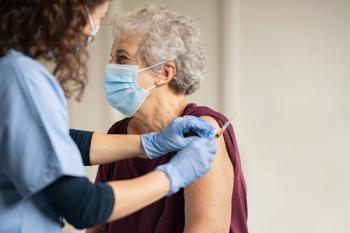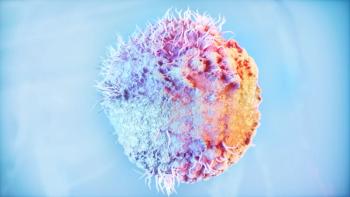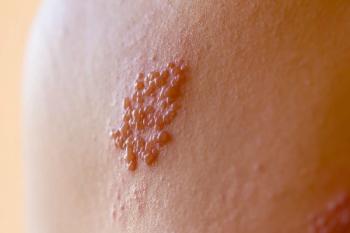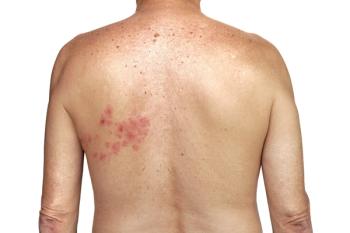
No Association Between mRNA COVID-19 and Herpes Zoster Identified
Study investigators hope these results are reassuring.
Receipt of an mRNA COVID-19 vaccine is not associated with reactivation of the varicella zoster virus (VZV) that causes shingles (herpes zoster), according to study results published recently in the Journal of the American Academy of Dermatology.1
The retrospective cohort study was based on data from the TriNetX Analytics Network, a health research network that aggregates health records of 70 million patients from 63 health care organizations. It included patients aged 18 and older who received the mRNA COVID-19 vaccine either as a first orsecond dose between December 15, 2020 and July 15, 2021. Herpes zoster reactivation related to mRNA COVID-19 vaccine administration was defined as occurring within 28 days.
A control population of persons in the database with no history of COVID-19 vaccination was compiled. All of the individuals had been diagnosed with 1 or more dermatological conditions, which the study’s authors determined did not have a known relationship to VZV reactivation.
Cohorts were matched by age, sex, race, ethnicity, HIV status, malignancy, use of antineoplastics, use of immunosuppressants, and receipt of shingles vaccine. The control population was split into 2 cohorts: a historical cohort of individuals who received their diagnoses between January 1 and December 1, 2020, a period when COVID-19 vaccination was not readily available, and a contemporary cohort of individuals diagnosed between December 15, 2020 and July 15, 2021. The control cohorts were assembled to parallel the study cohort and to account for possible seasonal variation in VZV incidence.
More than 1.3 million individuals who received a dose of the mRNA COVID-19 vaccine were identified, with a mean age of 55.1 years. More than half (57%) were women; 14% were Black, 65% were White, 11% were Hispanic or Latino, and 6% were Asian.
The investigators calculated the relative risk of herpes zoster in the 28 days after index events in the respective cohorts.“ No difference in VZV reactivation was observed among persons receiving the mRNA COVID-19 vaccine within 28 days compared to both the historical cohort and the contemporary cohort,” they reported.
They acknowledged that the public’s fear of potential adverse effects might drive vaccine refusal and subsequent preventable disease and death.
“Our data suggest mRNA COVID-19 vaccination is not associated with increased rates of VZV reactivation. We hope this reassures patients and the providers caring for them,” they wrote.
The CDC considers vaccination against shingles during the COVID-19 pandemic to be an essential preventive care service for older adults that should not be delayed or discontinued unless a patient is suspected or confirmed to have COVID-19.
Shingrixis the only vaccine against shingles available in the United States. It is FDA-approved for immunocompetent adults age 50 and older, and for immunocompromised adults 18 years and older—the first step toward providing protection against shingles to more at-risk individuals. Shingrix was also recently recommended by the CDC Advisory Committee on Immunization Practices for adults 19 years and older who are or will be immunodeficient or immunosuppressed due to disease or therapy.
Reference
1. Birabaharan M, Kaelber DC, Karris MY.
Newsletter
Pharmacy practice is always changing. Stay ahead of the curve with the Drug Topics newsletter and get the latest drug information, industry trends, and patient care tips.























